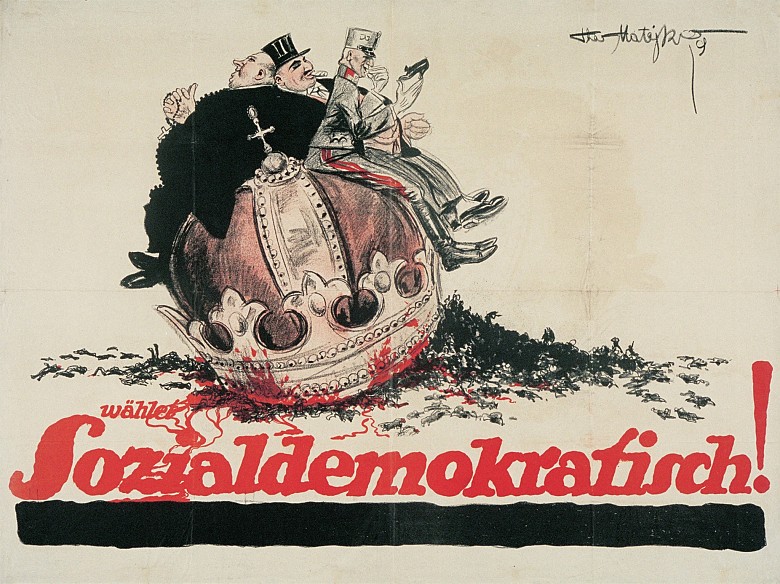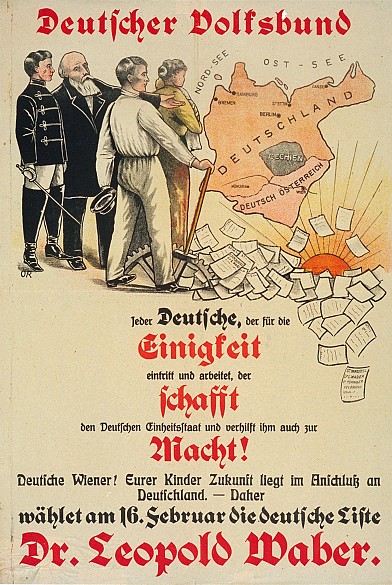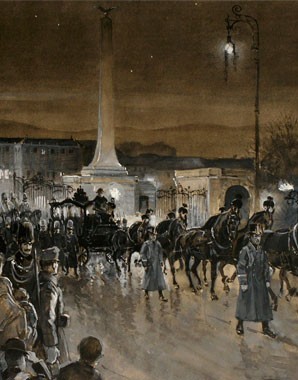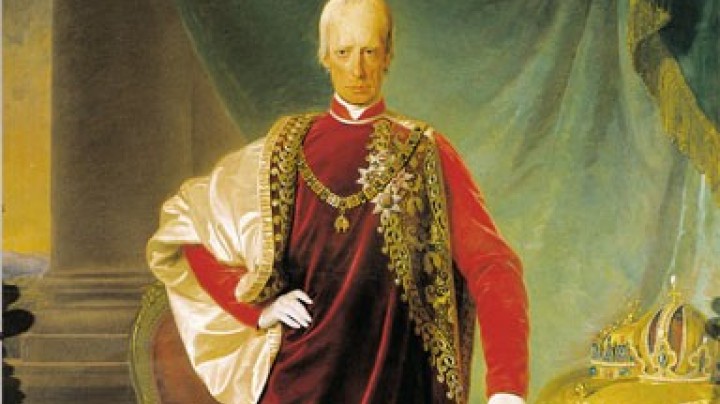Winning over the masses
First elections for a new state: with the introduction of universal, equal, direct and secret suffrage, women could vote for the first time. It was now the task of the parties to win over these new electors.
The constitutional conflicts led to the establishment of ideological lines that formed the basis for the parties which emerged in Austria during the 1880s. Church, state and the bureaucracy as an elite state apparatus were common targets for citizen-oriented party politics. This commonality of aims is revealed in the initially close relations between the different parties in the German Liberal camp under the leadership of Georg Schönerer. The later leaders of the mass parties, Karl Lueger and Victor Adler, came from this camp. The solutions proposed to combat the elitist establishment structures were admittedly very different. The conservative Christian-Socialist Party, which invoked Catholic traditions, emerged in opposition to the Liberals. It began to develop in the 1880s from the small trades movement that undertook to protect the interests of the lower middle classes so that they could stand up to the major industrialists. Karl Lueger came down on the side of the Christian Socialists.
Adler, on the other hand, joined the workers’ movement and fought for the rights of the lowest levels of society. In 1888 the Social Democratic Party was founded on the basis of this movement.
The parties were faced with a huge challenge in the first election held in the fledgling democracy in February 1919, with the task of building a republic out of the surviving state apparatus of the Monarchy.















